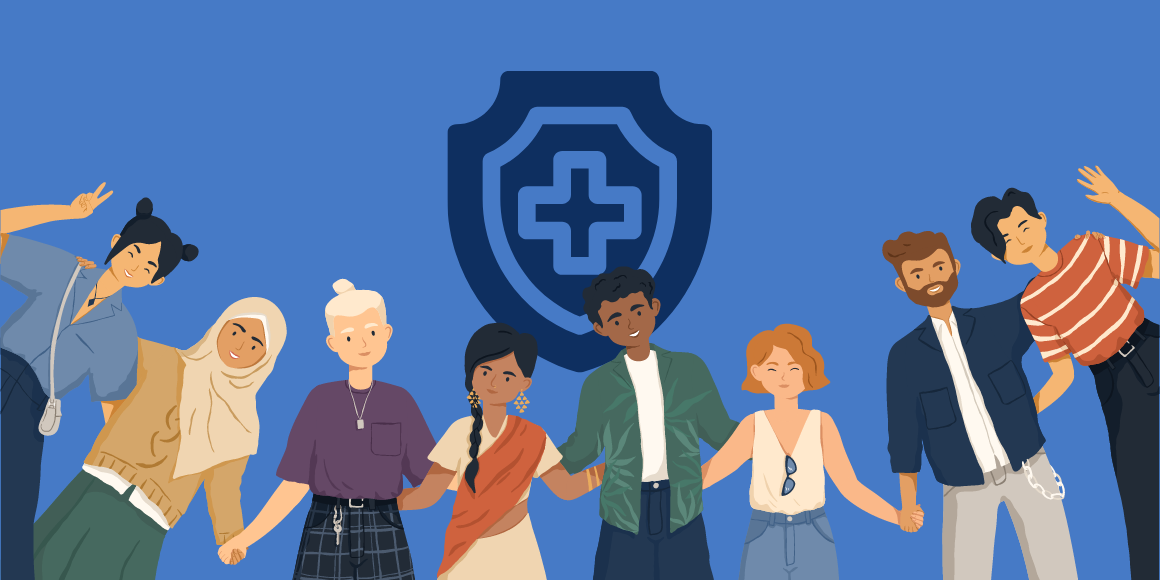Redetermination after the Public Health Emergency
In response to the global pandemic, the United States declared a public health emergency, which allowed individuals and families to remain enrolled in state Medicaid programs. But what happens when people lose Medicaid coverage because the nation is no longer in a public health emergency? In particular, what happens next to populations who have traditionally been affected by policy changes, for instance, those with limited English proficiency?
You may recall those early days of the pandemic when President Biden declared a public health emergency and the Families First Coronavirus Response Act (FFCRA) came into effect. One of the immediate actions was that the federal government asked state governments to keep people on their Medicaid rolls longer than usual. The federal government provided funding to help that happen.
Since states typically purge Medicaid rolls annually of those who no longer meet the requirements, you can imagine this ruling resulted in dramatic growth in Medicaid enrollees. According to the Centers for Medicare and Medicaid services, enrollment hit an all-time high of 76.7 million people, surging 20 percent in 16 months.
As the effects of the pandemic wane, the Biden administration will allow the public health emergency to expire—which will be an endpoint for FFCRA Medicaid provisions. The Biden administration said it would give states 60 days' notice. After that, states could begin their typical redetermination process to purge individuals or families from their Medicaid lists.
Challenges to Proving Eligibility
Redetermination is the regular process states go through to ensure Medicaid enrollees meet eligibility requirements. While most of the 78 million people on Medicaid rolls will remain eligible, there will be significant hurdles for many to prove eligibility for the first time in two years.
The redetermination process may result in confusion about eligibility. Individuals and families may even fall out of coverage as they attempt to determine their eligibility. And the short time between the ending of the public health emergency and redetermination may cause Medicaid agencies, who have been inundated by the process and timing, to drop individuals and families by mistake. The results from the state-by-state redetermination process may be one of the most significant changes since the Affordable Care Act was passed in 2010.
Disproportionate Effects
Loss of health coverage through the redetermination process will likely have a disproportionately large effect on culturally diverse Medicaid members, and those with with Limited English Proficiency (LEP). People with LEP already experience gaps in health insurance coverage and generally have poorer health outcomes, which relates to difficulties understanding and communicating health care information.
Reaching Diverse Populations
The redetermination process provides an unprecedented opportunity for healthcare companies to acquire and engage new members. And because state governments are looking for ways to help direct these populations, wise counsel and practical steps to reach these groups will be welcome.
Start Early With Communication
Get ahead of the coverage changes for LEP populations by anticipating their messaging needs and ensuring those messaging materials are crafted, tested, translated, and ready long before the delivery of that communication program begins.
- Given the timelines for printed materials, reaching out to LEP populations begins by ensuring marketing and enrollment materials and other documents are available in multiple languages
- Messages should be culturally adapted for targeted audiences, and reviewed by culturally competent advisors before printing.
- Check for other modalities that might help connect with different populations; for instance, many communities are more likely to pay attention to instant messaging texts or Facebook campaigns.
- Deliver messages tuned to specific populations using multiple modalities. In some cases, trained navigators will be necessary for one-on-one meetings with individuals.
- Train call center staff for bi-lingual engagement and culturally appropriate messaging.
- Connect with local community leaders to help get the messaging to the right audiences.
Partner for Access to Populations
Many states partner with agencies that can help them access culturally diverse and LEP populations. Partnerships will be essential as Medicaid redetermination gets underway.
United Language Group (ULG) is poised to help along many fronts. ULG’s Health Outcomes Solutions Team helps healthcare companies develop culturally appropriate strategies for engaging consumers, including the creation of messaging, and delivery outreach to diverse communities.
Contact the ULG Health Outcomes Team to talk about communicating more effectively with low English proficiency groups.

